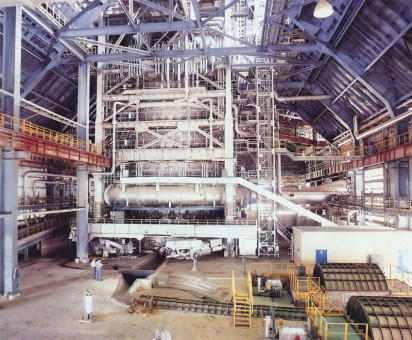By Providence Ayanfeoluwa
The Sea Empowerment and Research Center, SEREC,has emphasized the importance of a functioning steel industry to an efficient maritime sector in Nigeria.
In a report titled, “Nigeria at 65: The Maritime Scorecard We Cannot Ignore”, Head of Research at SEREC, Eugene Nweke, said without a functioning steel industry, Nigeria’s shipyards will remain import-dependent, uncompetitive, and unable to support large-scale ship repair or new building.
“Nigeria must link maritime development with industrialisation by reviving steel, through modular mini-mills which is essential for a credible shipbuilding and repair industry,” the report stated.
Nweke described the celebration of 65 years of nationhood as a milestone that should invite sober reflection, especially on sectors that anchor economic survival, chief among which is the maritime sector which he described as the lifeline through which over 80 percent of Nigeria’s trade flows.
He stated: “Multimodal transport is not optional. Until rail, barge and inland port integration become functional, Apapa and Tin Can will remain choke points undermining trade efficiency. Revenue agencies must move from celebrating “record collections” to proving impact: port costs must fall, cargo must flow faster, and trade competitiveness must rise.
“Without a functioning steel industry, Nigeria’s shipyards remain import-dependent, uncompetitive, and unable to support large-scale ship repair or new building.”
Lamenting that some things are yet to be fixed in the sector he said, “One national operator alone does not make a maritime nation. Sustainability requires governance free from political capture and backed by private capital; Ports remain road-dependent, with rail and inland waterways underdeveloped — a drag on competitiveness.
“Environmental sustainability has not been mainstreamed into port concessions. Nigeria risks lagging global decarbonisation standards; we import machinery, food, and refined fuel in volumes that dwarf non-oil exports, draining scarce forex and worsening our balance of trade; despite progress, Gulf of Guinea transits remain overpriced due to lingering piracy premiums and war-risk insurance.
“In 65 years, Nigeria has made undeniable strides – the expansion of Apapa, Tin Can, Calabar and Onne ports; regional leadership in the Gulf of Guinea anti-piracy campaign; and a growing pool of trained Nigerian seafarers through public–private training pipelines. The recent re-emergence of a national container shipping operator also signals a renewed ambition to reclaim a national maritime identity.
“Yet, the sector’s story is still defined more by its unrealised potential than its achievements.”
The post Functioning steel industry key to Nigeria’s maritime development — SEREC appeared first on Vanguard News.

